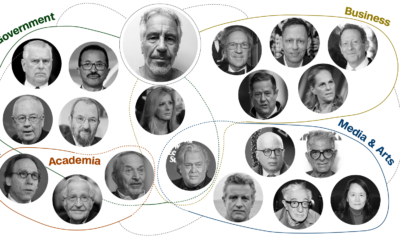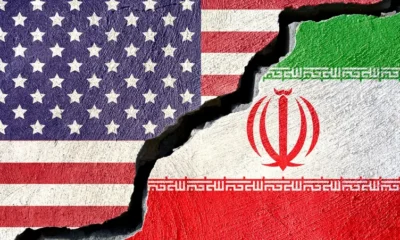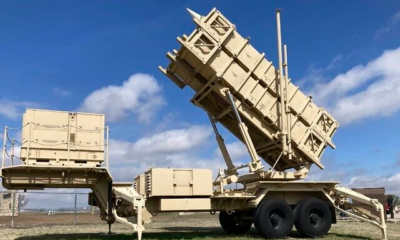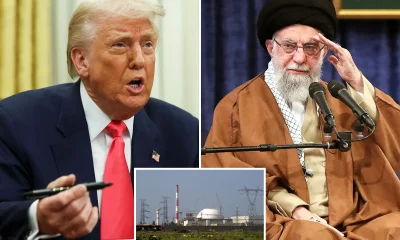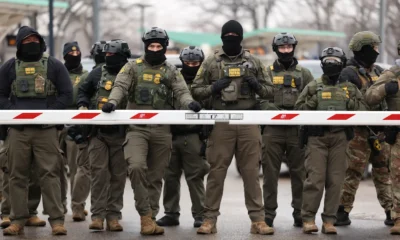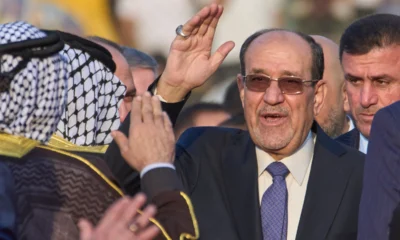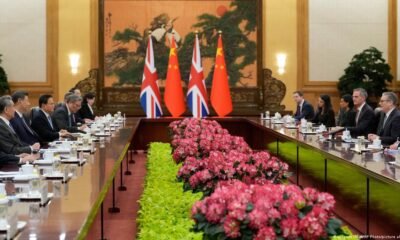Comment
America Explodes: Thousands Unite Nationwide Against Trump and Musk’s Power Grab

“Hands Off!” rallies sweep U.S. as protesters condemn Trump-Musk alliance and federal cutbacks.
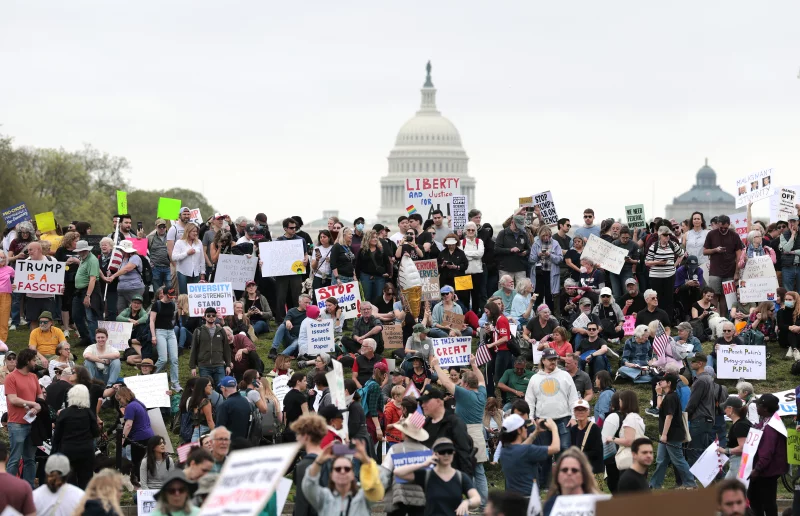
Massive “Hands Off!” protests across America challenge President Trump’s policies and Elon Musk’s influence, demanding protection for healthcare, education, and veterans.
Trump Faces Nationwide Revolt: America Says “Hands Off!”
America erupted into mass demonstrations this weekend, as anger against President Donald Trump and billionaire advisor Elon Musk’s sweeping federal cuts reached fever pitch. Over 1,300 rallies spread across cities large and small under a unified banner: “Hands Off!” Protestors denounced what many call an unprecedented billionaire power grab and a calculated assault on public welfare and freedoms.

People take part in the nationwide anti-Trump “Hands Off” protest in Atlanta, Georgia U.S., April 5, 2025. REUTERS/ Megan Varner
From coast to coast, these protests mark the most coordinated pushback yet against Trump’s radical second-term agenda. In Washington, D.C., thousands gathered near the Washington Monument, waving signs demanding the preservation of healthcare, veterans’ benefits, reproductive rights, and Social Security—all threatened by Trump’s slash-and-burn policies. The presence of veterans like Colleen Boland and Sonia Lundy was especially poignant, as they declared they were fulfilling their oath “to protect America against all enemies, foreign and domestic,” signaling the gravity of domestic divisions sparked by Trump’s controversial actions.

A particular target of public fury was Elon Musk, whose shadow loomed large after recent electoral embarrassments and unpopular federal downsizing decisions spearheaded by his informal “DOGE” task force. In Boston, demonstrators rallied against the arrest of Tufts doctoral student Rümeysa Öztürk, highlighting growing fears of arbitrary federal action targeting academics and critics. Meanwhile, protesters in Portland explicitly described Musk’s advisory role as an “illegal billionaire power grab,” underscoring the widening public distrust of the wealthy elite’s outsized influence on governance.

Archer Moran, from Port St. Lucie, Fla., protests President Donald Trump, who was a few miles away at his Trump National Golf Club, during a “Hands Off!” demonstration Saturday, April 5, 2025, in Palm Beach Gardens, Fla. (AP Photo/Alex Brandon)
But perhaps most significant were protests in smaller communities—Sylva, North Carolina, Charlottesville, Virginia, and elsewhere—underscoring the depth of frustration outside traditional Democratic strongholds. From elderly activists like Al and Bev Mirmelstein, making their political voices heard later in life, to young citizens forming digital coalitions like the “Sisters of the Resistance,” these protests reveal that opposition to Trump is diverse, determined, and deeply rooted.

Trump’s hardline approach has triggered a backlash far beyond partisan politics. These protests are about survival, reflecting genuine fears over vanishing social safety nets, shrinking healthcare access, threats to veterans’ livelihoods, and an erosion of democratic values. Despite repeated assurances from the administration, widespread layoffs, office closures, and drastic federal downsizing have citizens deeply unsettled, skeptical of Trump’s promises to protect essential programs.
This weekend’s message was crystal clear: Americans won’t quietly accept a billionaire-backed demolition of their society. Trump’s vision for America now faces fierce resistance—one that shows no signs of fading quietly into the night. The pressure is building, and the question is whether Trump and Musk, insulated by power and wealth, will heed the alarm—or whether America is on the brink of even deeper conflict.
Comment
How ICE Became Washington’s Breaking Point
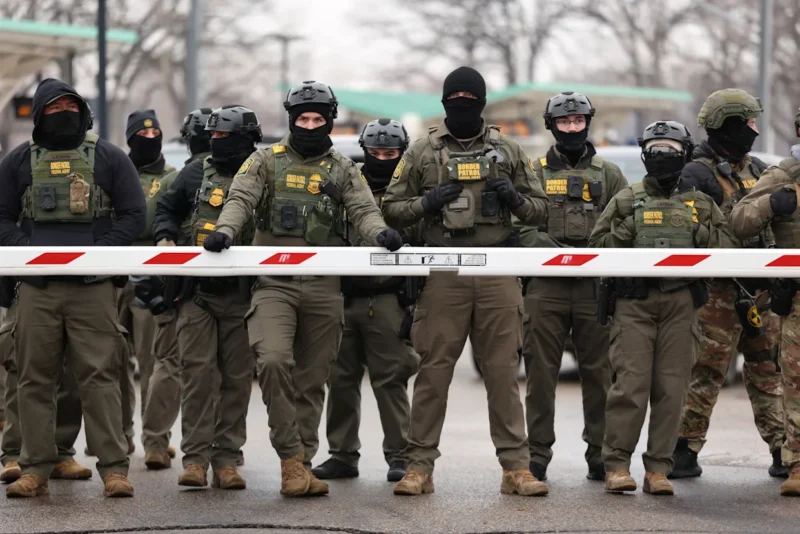
Masks Off, Cameras On—or Shutdown: Politics Return as Minneapolis Shootings Ignite DHS Showdown in Congress.
One shooting became two. Two deaths became a shutdown threat. Now DHS funding holds the government hostage.
Another U.S. government shutdown is looming, and this time the trigger is not abstract budget math but blood on the streets of Minneapolis.
With federal funding set to expire at midnight on Friday, Jan. 30, Senate Democrats are threatening to block any spending bill that includes funding for the Department of Homeland Security, escalating a standoff sparked by the fatal shooting of U.S. citizen Alex Pretti by a federal immigration officer. The killing came just weeks after another Minnesotan, Renée Good, died in a similar encounter — a sequence that has pushed immigration enforcement from a partisan dispute into a national reckoning.
At the center of the confrontation is Department of Homeland Security, which oversees Immigration and Customs Enforcement and Customs and Border Protection. For years, Democrats have criticized ICE’s tactics. Now, moderate senators who previously helped avert shutdowns are drawing a line.
“I hate shutdowns,” said Angus King, “but I can’t vote for a bill that includes ICE funding under these circumstances.” Colorado Democrat John Hickenlooper was blunter: “ICE is out of control.”
On Wednesday, Senate Minority Leader Chuck Schumer laid out a set of demands that amount to the most serious attempt yet to rein in federal immigration enforcement. They include tighter warrant rules, mandatory coordination with local law enforcement, a uniform federal code of conduct — and, most symbolically, a ban on masked agents combined with mandatory body cameras and visible identification.
“We want masks off, body cameras on,” Schumer said. “No more anonymous agents.”
Republicans see the demands as an effort to cripple President Donald Trump’s immigration crackdown. Democrats see them as basic guardrails after two citizens were killed in encounters with federal agents. The impasse has frozen what was, until days ago, a viable funding plan.
Congress had opted to split government funding into three bills. Two have already passed, keeping departments like Agriculture, Energy, and Justice open. The third — which includes DHS — narrowly cleared the House and appeared headed for Senate passage until the Minneapolis shooting shifted the political terrain.
Now Democrats say they will filibuster unless DHS funding is stripped out. They are willing to pass the rest of the government funding immediately, leaving DHS to negotiate separately. Republicans, led by Senate Majority Leader John Thune, insist on keeping the package intact. Thune has scheduled a vote for Thursday, widely expected to fail.
The White House is backing that approach. Press Secretary Karoline Leavitt said the administration wants the Senate to move forward with the full bill. Trump, for his part, has shown no sign of moderating enforcement tactics — and Democrats say executive promises are meaningless. “You cannot trust this administration,” said Nevada Sen. Jacky Rosen.
Procedurally, time is the enemy. Any change to the bill would require another House vote, but the House is currently in recess. Speaker Mike Johnson could recall lawmakers — or keep them away, as he did during the last shutdown.
If no deal is reached, the shutdown would be partial. Food assistance and national parks would continue. But air traffic controllers and TSA officers would again work without pay, federal workers would be furloughed, and loans, permits, and grant approvals would stall. Even if only DHS shuts down, agencies like disaster relief and the Transportation Security Administration lack the financial buffers ICE and CBP enjoy after last summer’s massive funding boost.
Cracks are also appearing inside the GOP. Republican Sens. Lisa Murkowski and Thom Tillis have called for DHS Secretary Kristi Noem to resign. Missouri Sen. Josh Hawley warned that current tactics are “not safe for anybody.”
Whether that unease translates into votes for reform remains unclear.
What is clear is that immigration enforcement has become the fulcrum of federal governance. Last fall, health care drove a record 43-day shutdown. Now DHS — and the conduct of masked federal agents on American streets — threatens to do the same.
The ticking clock is no longer just about funding. It is about accountability, trust, and whether Congress can still draw limits around executive power before the lights go out again.
Comment
Starmer in Beijing: Britain Recalibrates China Ties as U.S. Alliances Strain
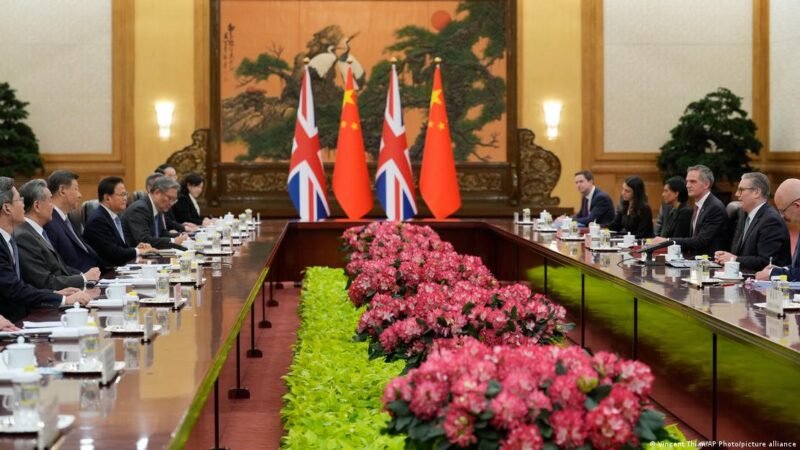
As Washington shakes alliances, Beijing opens its doors—and Britain walks in.
British Prime Minister Keir Starmer arrived in Beijing this week for the first visit by a UK leader since 2018, signaling a cautious but deliberate reset in relations with China at a moment of widening strain between the United States and its traditional allies.
Starmer’s three-day trip, accompanied by a sizable business delegation, places Britain at the center of a broader European diplomatic surge toward Beijing. The visit comes as U.S. foreign policy under Donald Trump injects volatility into transatlantic ties, pushing middle powers to hedge rather than choose sides.
Speaking en route, Starmer rejected calls for isolation, framing engagement as a matter of national interest. Britain, he argued, must remain vigilant on security while recognizing that disengaging from the world’s second-largest economy is neither realistic nor strategic. “It doesn’t make sense to bury our head in the sand when it comes to China,” he said, describing the visit as an opportunity to make “real progress.”
That message carried into his first meeting with Xi Jinping at the Great Hall of the People. Starmer told Xi that it had been “too long” since a British prime minister visited China and called for a “more sophisticated” relationship—language that suggests recalibration rather than rapprochement.
Xi, for his part, leaned into Beijing’s broader charm offensive. He urged the UK to work with China on global stability, climate change, and economic cooperation, arguing that past “twists and turns” in bilateral ties served neither country. As permanent members of the UN Security Council and major economies, Xi said, London and Beijing have a responsibility to deepen dialogue in an increasingly fragmented world.
Starmer is scheduled to meet Premier Li Qiang before traveling to Shanghai, where he and roughly 60 representatives from business, sport, and culture will hold talks with Chinese executives. The emphasis on commerce underscores London’s pragmatic calculation: political differences persist, but economic gravity is hard to ignore.
Britain’s move mirrors a wider European trend. France, South Korea, Ireland, Finland, and Canada have all sent senior delegations to Beijing in recent months. German Chancellor Friedrich Merz is expected to follow soon, reinforcing the sense that Europe is probing a more autonomous China policy as U.S. trade and security commitments appear increasingly conditional.
China, meanwhile, is exploiting the moment. After years of diplomatic retrenchment during the pandemic, Beijing is once again hosting foreign leaders, positioning itself as a predictable partner amid Western turbulence. Trump’s own planned trip to China in early April only sharpens the irony: allies are engaging Beijing partly because Washington has become harder to read.
The visit is not without friction. Plans for a large new Chinese embassy in London have sparked domestic criticism, and unresolved issues—most notably the erosion of freedoms in Hong Kong—hover over the talks. Starmer has declined to say whether he will raise sensitive cases such as the conviction of media tycoon Jimmy Lai, a silence that reflects the delicate balance he is trying to strike.
For now, Starmer is framing the trip as pragmatic statecraft rather than geopolitical defiance. He has played down suggestions that engaging China risks alienating the United States, or that Britain is embracing a “middle power” doctrine aimed at countering both Washington and Beijing.
“I’m a pragmatist,” Starmer said, “a British pragmatist applying common sense.”
In practice, that pragmatism marks a shift. Britain is no longer approaching China solely as a strategic problem to be managed, nor as a partner to be embraced uncritically. It is testing a narrower path—engagement without illusion, cooperation without alignment—at a time when the old certainties of the Western alliance are visibly under strain.
Comment
Stolen Aid, UN Prestige, and Parliamentary Violence Expose a State in Crisis
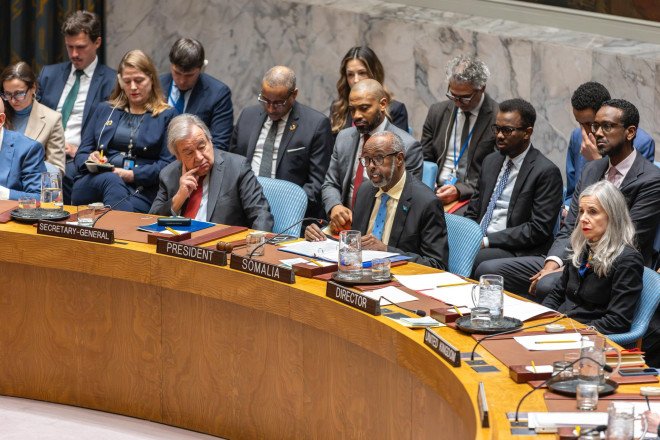
From the UN Chair to Chaos at Home: How Somalia Humiliated Itself on the World Stage.
Somalia chaired the UN Security Council — and collapsed politically the same week. This is not coincidence.
Somalia’s first time presiding over the United Nations Security Council since 1972 should have been a moment of national rehabilitation. Instead, it became a case study in contradiction — a symbolic elevation abroad paired with institutional decay at home.
On Monday, Somalia assumed the rotating presidency of the United Nations Security Council, convening a high-level session on the promotion of the rule of law. The meeting was briefed by António Guterres, African Union Commission Chair Mahmoud Ali Youssouf, and former International Court of Justice judge Abdulqawi Yusuf.
Yet the man who was supposed to personify this milestone — President Hassan Sheikh Mohamud — was conspicuously absent.
According to diplomatic sources, Hassan Sheikh was denied a U.S. visa and failed to attend Somalia’s most important multilateral appearance in half a century. In his place, Somalia’s UN ambassador, Abukar Dahir Osman, chaired the session. Formally, the event went ahead. Substantively, the absence spoke louder than any speech.
It was an embarrassment sharpened by timing.
Just days earlier, Somalia admitted responsibility for the theft of World Food Programme food aid from a warehouse at Mogadishu airport — aid funded largely by the United States and intended for starving civilians amid drought and climate shocks. The admission came only after Washington suspended assistance and demanded accountability. That stolen food was not abstract humanitarian loss; it was bread taken from the mouths of the hungry.
The optics were devastating. Somalia chaired a UN meeting on the rule of law while conceding it could not safeguard emergency food aid, and while its president reportedly failed to clear U.S. immigration scrutiny. Adding to the sting, the U.S. president had recently described Somalia as a “stateless place” — language Mogadishu publicly rejected, but privately reinforced through dysfunction.
Then came the implosion at home.
On the same day Somalia sought to project statesmanship abroad, its parliament descended into chaos. A joint session of both houses of the Somali Federal Parliament collapsed after shouting, bottle-banging, and physical violence erupted over a proposed constitutional amendment.
The agenda — amending Chapters 5 and 9 of the provisional constitution — was rejected outright by opposition lawmakers, who argued that with barely three and a half months left in the president’s term, any constitutional change would be illegitimate. The Speaker of the Upper House, Abdi Hashi Abdullahi, did not attend, underscoring deep institutional fractures.
The session disintegrated into fistfights. MPs traded blows. Threats were issued openly. One lawmaker warned that if Speaker Sheikh Aden Madoobe persisted with “unpopular agendas,” he would be removed from office. The parliament — with cameras rolling — became a physical battleground.
This convergence of events is not accidental. It reveals a system trapped in performative legitimacy: capable of occupying international chairs, yet unable to enforce order, consensus, or accountability at home. Somalia’s leadership speaks fluently in the language of multilateralism while failing the most basic tests of governance — food security, parliamentary procedure, and constitutional restraint.
Somalia’s UN presidency was described by its mission as “historic.” That is true. But history does not record symbolism alone. It records credibility.
On this dark day, Somalia demonstrated that prestige without discipline is hollow — and that the distance between the UN chamber and chaos in Mogadishu is far shorter than officials care to admit.
Comment
Is Xi Jinping Losing Trust in China’s Top Generals?
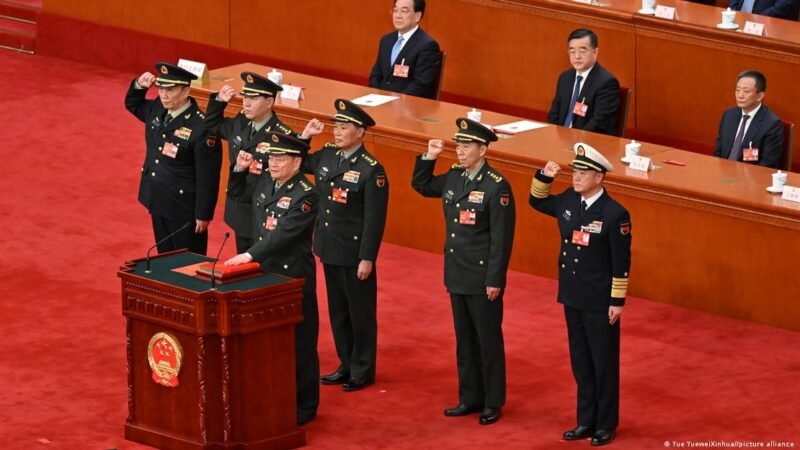
Inside the PLA Corruption Shock: When Loyalty Matters More Than Rank in Beijing.
China’s army isn’t fighting a war abroad — it’s fighting one inside its own command.
A sweeping corruption scandal inside China’s armed forces is raising a question once considered unthinkable in Beijing’s tightly controlled system: is President Xi Jinping losing trust in his own top generals?
Over the weekend, Chinese authorities confirmed investigations into two of the most senior figures in the People’s Liberation Army for “serious disciplinary violations,” the Communist Party’s standard euphemism for corruption. Those targeted include Zhang Youxia, one of Xi’s closest military allies and a deputy chairman of the Central Military Commission, as well as General Liu Zhenli. Both have been removed from their posts.
The implications are profound. The Central Military Commission is the nerve center of China’s military power, overseeing the army, navy, air force, rocket forces, armed police, and militia. Its chairman is Xi himself — a role widely regarded as more powerful than the presidency. Under China’s constitution, command of the gun rests with the commission, not the state.
This hierarchy reflects a long-standing truth in Chinese politics. Mao Zedong famously declared that political power grows out of the barrel of a gun, a principle that has shaped leadership transitions for decades. In 2005, Jiang Zemin clung to the military chairmanship long after stepping down as president, handing it to Hu Jintao only after a delay — a reminder that control of the PLA is the ultimate guarantor of authority.
That is why the fall of Zhang Youxia is especially striking.
Zhang was China’s highest-ranking uniformed officer and the only senior commander in the commission’s top tier with actual combat experience, having fought in the 1979 border war with Vietnam. Rising from an ordinary soldier to the pinnacle of the PLA, he embodied a traditional military career path increasingly rare in modern China’s politicized officer corps.
His political stature was just as significant. Zhang sat on the Communist Party’s 25-member Politburo and was promoted past retirement age, a clear signal of Xi’s personal favor. Their ties ran deep, rooted in shared family history and provincial origins.
Yet that proximity now appears to have become a liability.
Analysts see the investigations as part of Xi’s broader effort to reassert absolute control over the military — and to dismantle any networks that could rival his authority. The PLA Daily, the military’s official newspaper, accused Zhang of abusing the power entrusted to him by the commission chairman, warning that no rank or honor grants immunity. The language was telling: it hinted at factionalism, not just financial wrongdoing.
“Once trust is gone, the specific charge becomes a formality,” one regional security expert observed. In Xi’s system, loyalty outweighs experience, and perceived independence can be fatal.
The timing matters. Xi has poured resources into the PLA, doubling defense spending since taking office and demanding readiness for a potential conflict over Taiwan. Yet successive purges have hollowed out the upper ranks. With Zhang’s removal, the commission’s leadership is now devoid of commanders with battlefield experience — a reality that quietly unsettles military professionals even as Beijing projects confidence abroad.
Online, the public has noticed the contradiction. Dark humor circulates on Chinese forums: “The army is now fighting wars against its own generals.”
China continues to showcase naval power and military modernization, spending more than €220 billion annually. But beneath the parades and exercises lies a deeper tension. Xi’s anticorruption drive has evolved into something more existential — a struggle to ensure that the gun remains firmly in his hands, even if that means purging the very generals once considered indispensable.
In today’s China, the greatest threat to a commander may no longer be the enemy across the border, but suspicion in Beijing.
Comment
Arab League Mobilizes Against Somaliland
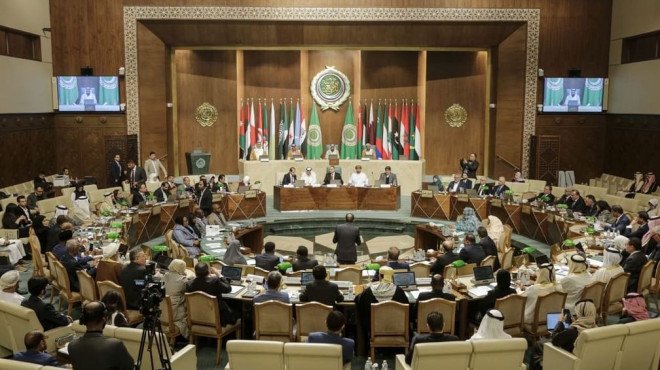
Arab Parliament Aligns With Somalia Against Somaliland in Post-Recognition Diplomatic Escalation.
The Arab Parliament’s declaration in Cairo rejecting Somaliland and pledging political action in support of Somalia marks a familiar reflex in Arab League diplomacy: preserve inherited borders first, question governance later.
Issued during the opening of its second general assembly session, the statement framed Somaliland’s emergence — and Israel’s recognition — as violations of “sovereignty” and “territorial integrity,” invoking non-interference while simultaneously endorsing active political mobilization against a self-governing state that has existed for more than three decades.
This contradiction is not accidental. It reveals the enduring preference within Arab institutions for juridical continuity over political reality — even when that continuity rests on a state apparatus that remains fractured, militarily dependent, and diplomatically reactive.
The timing matters. Israel’s recognition of Somaliland punctured a long-standing taboo in regional diplomacy: that the Horn of Africa must be filtered exclusively through Mogadishu. The Arab Parliament’s response is less about Somaliland itself than about containing the precedent. If one external actor can legitimize Somaliland, others may follow. Cairo’s message, therefore, is not aimed at Hargeisa alone — it is directed at every capital contemplating engagement beyond Somalia’s federal framework.
Yet this mobilization exposes more weakness than strength.
Somalia’s push for Arab backing arrives as the global narrative around failed governance is shifting. At Davos, U.S. President Donald Trump’s rhetoric reclassified chronic state failure not as a humanitarian dilemma but as a strategic liability. In that reframing, Somalia ceases to be a symbol of victimhood and becomes a case study in unmanaged sovereignty.
That shift matters deeply for Somaliland.
As Western policymakers harden their stance against exporting instability through migration and aid dependency, space opens for alternative African narratives — those rooted in territorial control, security provision, and institutional continuity. Somaliland fits that model. Somalia does not.
Mogadishu presents the Arab Parliament’s statement as a diplomatic victory. In reality, it highlights the fragility of its claim. The need to summon collective denunciations is itself evidence of declining unilateral authority. Sovereignty that requires constant reaffirmation is sovereignty under question.
Meanwhile, Somalia’s strategic alignment is narrowing. Its deepening reliance on Turkey and Saudi Arabia, combined with the breakdown of its partnership with the UAE, signals a retreat into patronage-based diplomacy rather than diversified engagement. Abu Dhabi’s recalibration is instructive: maritime security, energy corridors, and Red Sea stability demand partners who control territory and honor agreements. Somaliland does both.
Claims over Berbera, Bosaso, and Kismayo increasingly ring hollow in a diplomatic system that measures legitimacy through performance, not paperwork. Somaliland has held elections, maintained internal peace, and governed its territory continuously since 1991 — achievements few conflict-region states can match.
The Arab Parliament’s statement, then, is less a blockade against Somaliland’s future than a mirror reflecting the limits of Somalia’s present.
In the evolving Horn of Africa, recognition will not be granted by declarations alone — but by those who can demonstrate that sovereignty is something exercised, not merely asserted.
Comment
Starmer Rebukes Trump Over Afghanistan Comments
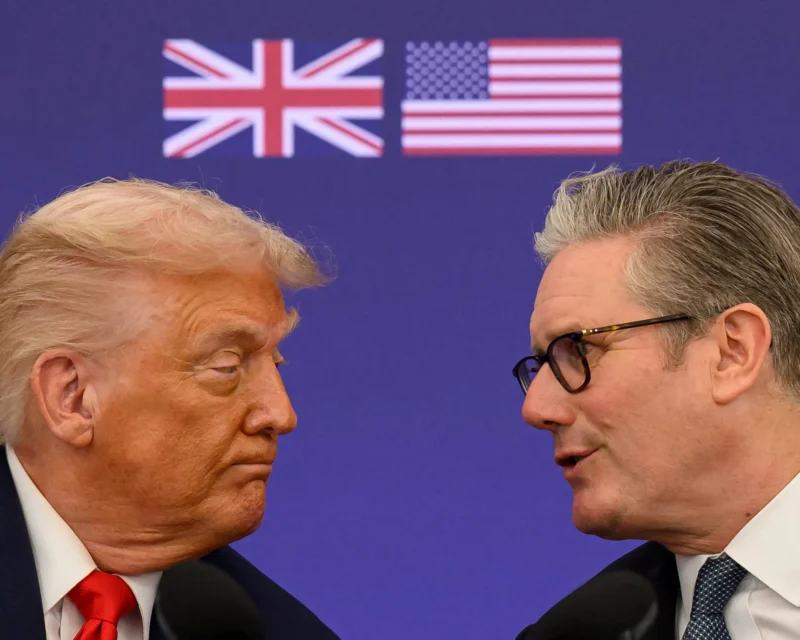
When Words Become Wounds: Trump, Starmer, and the Fracturing of the Atlantic Alliance.
Words, in diplomacy, are rarely just words. When U.S. President Donald Trump casually dismissed NATO allies’ role in Afghanistan as having stayed “a little back” from the frontlines, he did more than provoke outrage — he reopened one of the deepest emotional fault lines in the Western alliance.
British Prime Minister Keir Starmer’s response was unusually blunt. Calling Trump’s remarks “insulting and frankly appalling,” Starmer accused the American president of diminishing the sacrifice of British soldiers who fought and died alongside U.S. forces over two decades of war. It was not merely a political rebuke; it was a moral one.
The numbers alone refute Trump’s narrative. Of the 3,486 NATO troops killed in Afghanistan, 457 were British — second only to the United States. These were not rear-line casualties. British soldiers fought in some of the war’s most brutal theatres, including Helmand Province, where casualty rates rivalled those of U.S. Marines. Canada lost 165, many of them civilians and frontline troops embedded in the same battle zones.
Starmer’s intervention marks a rare moment where London has chosen confrontation over quiet correction. That choice reflects more than wounded pride. It signals rising alarm in European capitals over Trump’s increasingly transactional approach to alliances — one that prizes leverage over loyalty and spectacle over solidarity.
The timing makes the rupture more serious. This clash follows Trump’s recent criticism of Britain over the Chagos Islands deal and comes amid a broader pattern of disruptive diplomacy: threats to annex Greenland, tariff brinkmanship with Europe, and renewed unilateral posturing toward Iran. In this context, Trump’s remarks about Afghanistan were not an isolated misstep but part of a worldview that recasts alliance contributions through a narrow lens of American primacy.
For Britain, the issue is existential to its military identity. The Afghan war remains one of the defining sacrifices of a generation. To suggest British troops were marginal is to erase years of joint command, shared casualties, and battlefield interdependence. It also revives uncomfortable scrutiny of Trump’s own avoidance of military service during Vietnam — a contrast not lost on veterans’ families.
Starmer’s call for an apology may seem futile — Trump rarely apologizes — but the demand itself is strategic. It draws a line: respect for allied sacrifice is not optional currency in the Atlantic alliance.
Yet the deeper concern lies beneath the rhetoric. When leaders begin questioning not just policies but the legitimacy of past shared bloodshed, alliances shift from strategic partnerships into fragile contracts. That is a dangerous evolution at a time when NATO faces its most complex security environment since the Cold War.
In the end, this is not merely about Afghanistan. It is about whether the transatlantic relationship remains rooted in shared memory and mutual respect — or whether it is being reduced to a balance sheet of who “paid” and who “led.”
For now, Starmer has made Britain’s position clear: alliances are built not only on power, but on honor.
Comment
When Pressure Comes, Putin Lets Iran Burn Alone
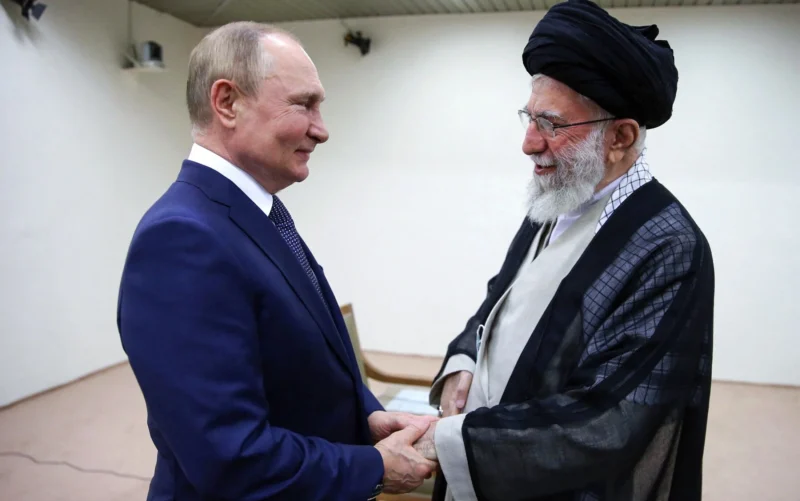
Putin’s Calculated Distance from Iran Exposes the Limits of Russia’s Alliances.
Alliances built on convenience rarely survive real pressure. The current standoff between Washington and Tehran has laid bare a quiet but telling shift: Vladimir Putin, long portrayed as Iran’s strategic patron, is now carefully stepping aside as the Islamic Republic faces one of its gravest moments in decades.
As President Donald Trump warns that a U.S. naval armada is moving toward the Gulf and openly hints that strikes on Iran remain an option, Moscow’s response has been conspicuously restrained. Russia’s foreign ministry has advised its citizens against traveling to Iran. Russian officials have offered mediation rather than protection. And the Kremlin has made no move suggesting it would place itself between Tehran and Washington.
This is not accidental. It is strategic abandonment.
For over a decade, Russia and Iran forged a partnership built on opposition to Western power. That relationship deepened after Moscow’s invasion of Ukraine, when Iran supplied Russia with Shahed kamikaze drones that helped sustain the Kremlin’s campaign against Ukrainian cities. In return, Tehran expected unprecedented military cooperation, including advanced aircraft and air defense systems.
Yet the partnership was always transactional, never existential.
Russia localized drone production by 2023, reducing its dependence on Iranian supply. China and North Korea now matter far more to Moscow’s war effort. And the collapse of the Assad regime in Syria in late 2024 — a regime jointly propped up by Russia and Iran — dealt a severe blow to their shared regional architecture.
Even their much-vaunted “comprehensive strategic partnership treaty” signed in early 2025 stopped short of any mutual defense obligation. That omission now looks deliberate. Russia wants flexibility, not entanglement.
The moment of truth came last summer when Israel and later the United States systematically dismantled Iran’s air defenses and struck its nuclear infrastructure — humiliating Tehran in full view of the world. Iranian envoys rushed to Moscow. They returned empty-handed.
Now, as protests sweep Iran and the regime faces mounting internal and external pressure, Putin has again chosen distance over loyalty. His priority is not Tehran’s survival. It is staying in Trump’s good graces as negotiations over Ukraine intensify. By letting the foreign ministry issue ritual condemnations while avoiding concrete commitments, Putin shields himself from consequences while signaling to Washington that Iran is expendable.
Even the limited Russian support visible — a handful of military cargo flights and vague arms assistance — falls far short of what would meaningfully alter Iran’s fate. Moscow cannot spare systems from Ukraine, and it will not risk escalation for a partner whose core survival is not tied to Russia’s own.
This moment exposes a deeper truth about Putin’s world: Russia’s partnerships are designed to be reversible. Loyalty flows upward, never reciprocally.
For Washington, this is an opportunity. Not merely to isolate Iran, but to demonstrate to Russia’s other partners that when pressure arrives, the Kremlin’s friendship has a sharp expiration date.
Putin’s silence today may echo far beyond Tehran.
Comment
Ethiopia Quietly Repositions Toward Scandinavia
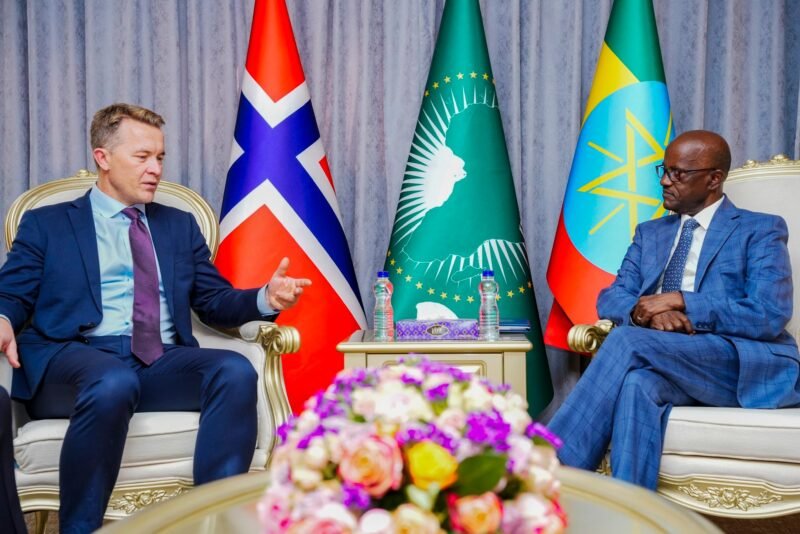
Ethiopia and Norway have agreed to deepen bilateral cooperation following talks between Ethiopia’s State Minister of Foreign Affairs, Ambassador Hadera Abera, and Norwegian Deputy Foreign Minister Andreas Kravik, held today in Addis Ababa.
According to Ethiopia’s Ministry of Foreign Affairs, the discussions focused on expanding collaboration in areas of mutual interest, including climate action, trade, and investment.
Ambassador Hadera highlighted the long-standing relationship between the two countries and reaffirmed Ethiopia’s commitment to strengthening ties, particularly through its Climate-Resilient Green Economy (CRGE) Strategy and the Green Legacy Initiative. He emphasized Norway’s expertise in afforestation and environmental management as a key area for enhanced cooperation.
The state minister also briefed his Norwegian counterpart on Ethiopia’s ongoing economic liberalization efforts and encouraged Norwegian companies to explore investment opportunities in the country.
Deputy Minister Kravik welcomed Ethiopia’s reform agenda and stressed the importance of boosting trade and investment cooperation as part of a broader effort to strengthen bilateral relations.
Both sides also exchanged views on regional peace and security and agreed to work closely in bilateral and multilateral forums on issues of shared interest.
The talks signal Ethiopia’s growing engagement with European partners as it seeks to diversify its diplomatic and economic partnerships while advancing its green development and investment strategies.
-

 Analysis11 months ago
Analysis11 months agoSaudi Arabia’s Billion-Dollar Bid for Eritrea’s Assab Port
-

 Interagency Assessment2 months ago
Interagency Assessment2 months agoTOP SECRET SHIFT: U.S. MILITARY ORDERED INTO SOMALILAND BY LAW
-
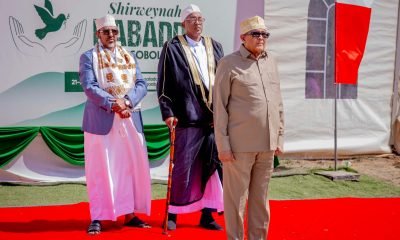
 Somaliland3 months ago
Somaliland3 months agoSomaliland Recognition: US, UK, Israel, and Gulf Bloc Poised for Historic Shift
-

 EDITORIAL1 year ago
EDITORIAL1 year agoDr. Edna Adan Champions the Evolving Partnership Between Somaliland and Ethiopia
-
Top stories2 years ago
Ireland, Norway and Spain to recognize Palestinian state
-

 Russia-Ukraine War6 months ago
Russia-Ukraine War6 months agoFibre-Optic Drones Shift Ukraine’s Drone Warfare
-

 ASSESSMENTS10 months ago
ASSESSMENTS10 months agoOperation Geel Exposes the Truth: International Community’s Reluctance to Embrace Somaliland as a Strategic Ally
-
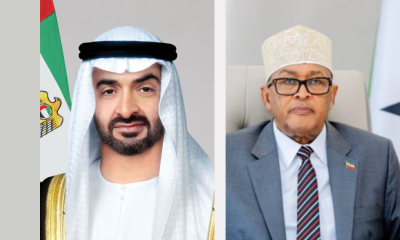
 Somaliland1 year ago
Somaliland1 year agoSomaliland and UAE Elevate Ties to Comprehensive Strategic Partnership


